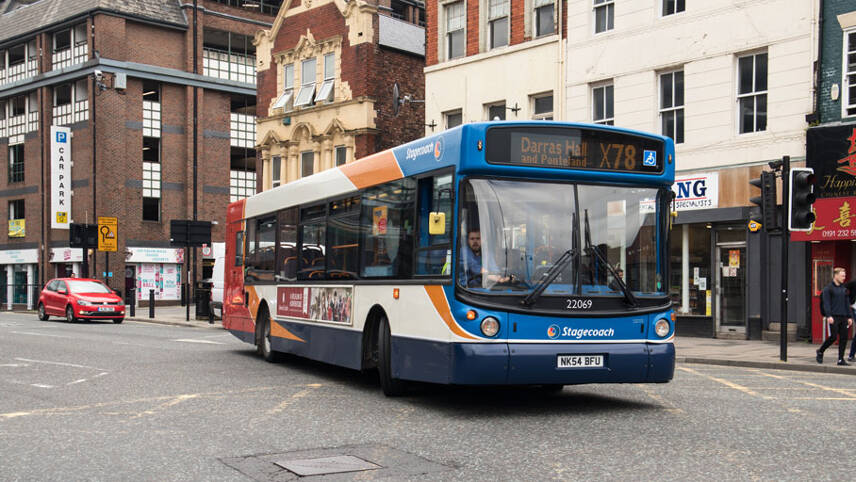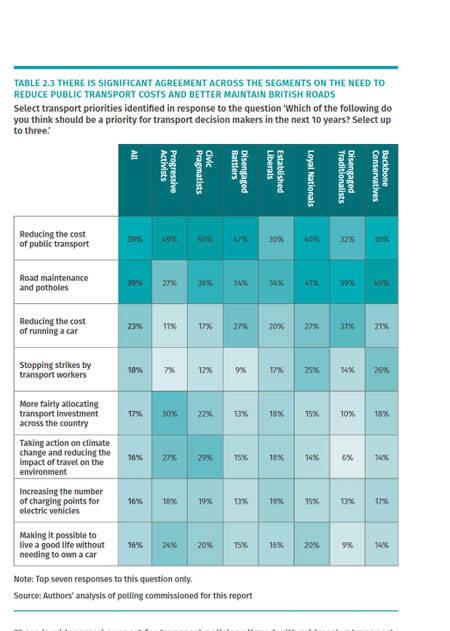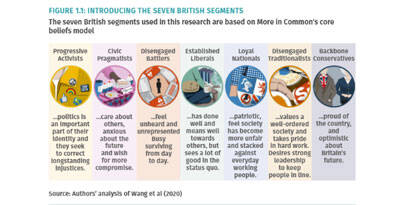Register for free and continue reading
Join our growing army of changemakers and get unlimited access to our premium content

Conducted by More in Common and the IPPR think-tank, the survey covered a representative sample of people in terms of age, location, how they voted at the last General Election and their general outlook on policy.
Across all demographics, the majority of people have changed their transport habits over the past two years due to rising fuel costs and increasing public transport fares.
Seven in ten out of the whole survey base said they had made changes like walking or cycling shorter routes, or avoiding long-distance travel. Four in ten say they are worried about affording the transport they need in the coming months.
The rising cost of transport is perceived as impacting those in rural areas and/or on low incomes to the greatest extent, with a -28% net score. Respondents noted how public transport is generally less reliable and affordable in rural areas than town and cities, while access to electric vehicle chargers, walking and cycling routes is also perceived to be worse.
People without cars, respondents said, are getting a bad deal out of the current transport system (net score of -18%). In contrast, those who own a petrol or diesel car were only perceived to be getting a slightly bad deal (net score of -2%).
In short, those polled think the current system works best for those on high incomes with multiple vehicles, and worst for those who are completely reliant on public transport.
At the Budget last month, Chancellor Jeremy Hunt froze fuel duty for the 14th year in a row. It came after the ban on new petrol and diesel car sales was postponed from 2030 to 2035 by Prime Minister Rishi Sunak.
The Conservatives are seeking to position themselves as the party for motorists ahead of the general election, with many MPs staunchly opposing decisions like the expansion of London’s Ultra-Low Emission Zone (ULEZ) overseen by Labour Mayor Sadiq Khan.
Stephen Frost of the IPPR said: “Rhetoric from the prime minister fabricating a ‘war on motorists’ over the last few months has been incredibly unhelpful.
“In reality, we know that even the most regular drivers also get on buses and trains and benefit from safer streets to walk, wheel and cycle. You’re not either a driver or a non-driver, in fact, most of us drive and use public transport as well as our legs.
So it is crucial that those in Westminster stop treating transport as a culture war issue and start delivering on the people’s priorities.”
Modal shift
More than half of those polled said it would benefit motorists and non-motorists alike if policymakers worked to make public transport lower-cost, more convenient and accessible.
Four in ten motorists said they would like to use public transport more than they currently do, and the same proportion wanted to incorporate more active transport into their routines (walking and cycling).
Across four in ten of the political demographics included in the survey, reducing the cost of public transport was deemed a greater priority than improving road maintenance and tackling potholes. And no demographics believed it was a more urgent policy priority to reduce car running costs than to bring down public transport prices.

Nonetheless, the survey revealed a broad lack of support for increasing road and fuel taxes to encourage people to drive less. Such a policy was broadly believed to be unfair and likely ineffective.
The report comes shortly after an 8.7% hike in ScotRail ticket prices which took effect over the long weekend. Similarly, all rail fares increased by 4.9% in England and Wales last month.
The report revealing the survey results states: “Change is hard and can be disruptive to people’s daily routines. But there is a clear consensus that transport at the moment isn’t working, and an appetite for a new approach − as long as it takes the cost of living crisis into account.”
It adds: “Policies geared towards changing how people travel can provoke loud and aggressive resistance from some quarters… The combination of disinformation, political point scoring and genuine concern about the effectiveness or fairness of transport policies can lead to widespread reporting of a ‘public backlash’.
“This is a significant challenge that decision makers must overcome if transport is to be made to work better for people and play its role on the path to net-zero. Despite how vocal this minority can be, this survey should remind politicians and policymakers that most of the British public support action to improve public transport and create more space for active travel. There is widespread support for policies that make transport greener and rebalance how road space is used towards more sustainable transport. The key question becomes how to implement these at the pace and scale needed over the coming five to 10 years.”
Transport is the UK’s highest-emitting sector. The UK Government’s climate advisors warned last year that there are only “credible” policies in place to meet 38% of the required emissions reductions for road transport up to the mid-2030s and the Sixth Carbon Budget.



Interesting on the costs of public transport – I wonder if respondents were even aware of the £2 fare cap on buses?
And as a cyclist I’m very much in support of fixing potholes which can, quite literally, be a killer if they throw you off your bike.